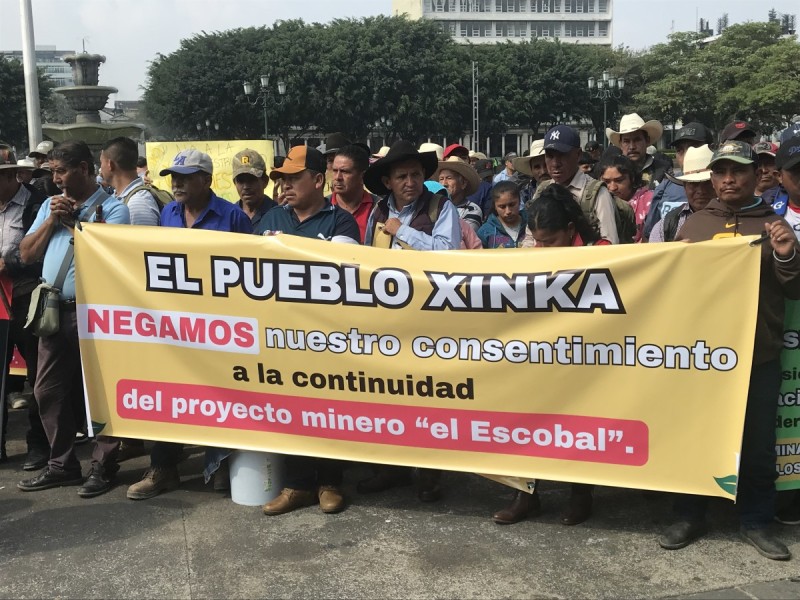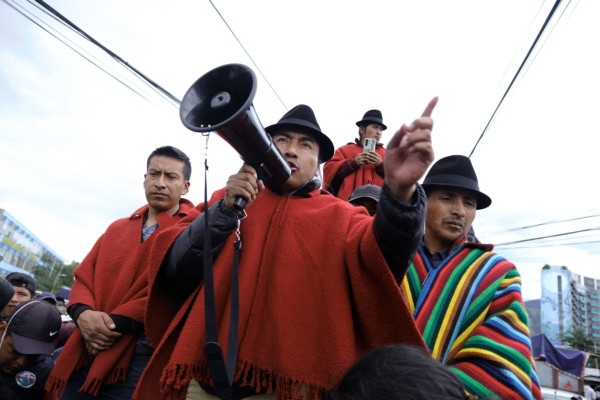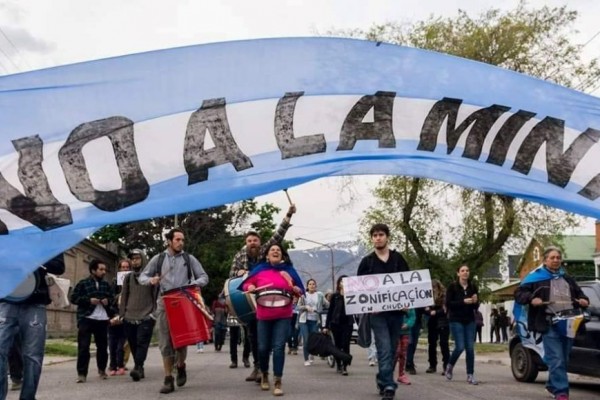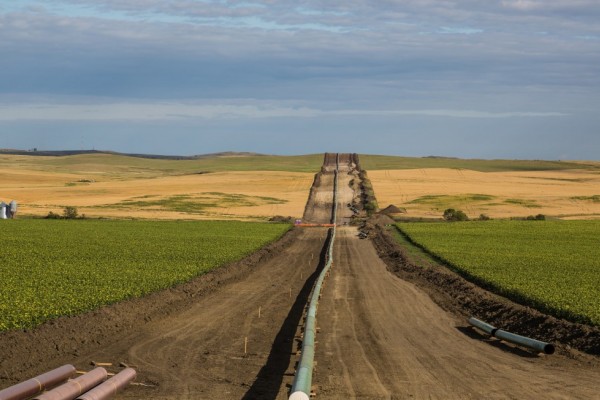Canadian-owned mine in Guatemala needs Indigenous consent
The Xinca people say “No” to Vancouver-based Pan American Silver
Indigenous PoliticsCanadian BusinessLatin America and the Caribbean

On May 8, the Xinka People issued a firm rejection of the reopening of the Escobal silver mine, operated by Vancouver-based Pan American Silver, marking the culmination of a seven-year consultation process mandated by Guatemala’s Constitutional Court. Photo by Hayley Woodin Hastings.
In the culmination of a historic consultation process in Guatemala, the Xinka Indigenous people have just presented their decision to the Guatemalan government, denying consent over the future of Vancouver-based Pan American Silver’s Escobal mine. This is a clear example of Indigenous peoples exerting their right to decide what happens on their territory.
Canada and Canadian-based mining companies have an outsized influence in Latin America given the significant government support and capital raised on Canadian stock exchanges for the industry. The company, and Canadian authorities, must respect the Xinka’s decision.
The Union of British Columbia Indian Chiefs has stood in solidarity with the right to self-determination of the Xinka for over five years, during which time we have passed two resolutions in support of their struggle.
We are not surprised at the outcome. For nearly seven years, the Xinka have produced, received and analyzed information on the current and potential impacts from this massive silver mine on their culture, spirituality, social fabric, water, health and ways of life.
These impacts from mining remind us of our own experiences in BC. Xinka concerns of water contamination and potential mine waste storage collapse at Escobal recall the risks to water and safety from the collapse of the Mount Polley tailings dam. The losses the Xinka have documented to subsistence farming and fishing activities remind us of the huge trade-offs between mining and other livelihood activities from projects like the Ajax mine.
We are also aware that communities in the area surrounding the Escobal mine have maintained a 24-hour roadside camp that has blocked mine traffic continuously for eight years. Only a people with a deep conviction to defend their land, water and identity can sustain a difficult undertaking like that for so long and at great risk.
Failing to respect the Xinka people’s decision would be disastrous. The Escobal mine’s history already illustrates the serious consequences of proceeding without Indigenous consent.
For example, when the Guatemalan government first approved the operating permit for the Escobal mine in 2013, it also declared a state of siege and installed four military outposts in the area for long enough to strike fear in people and to get the mine up and running the following year. Private security guards at the mine opened fire on peaceful protesters, injuring six people. This incident led to a years-long civil lawsuit in BC courts. There were also numerous other incidents of harassment, defamation, violent attacks, and legal persecution against the Xinka before the mine was suspended in 2017.
Throughout the nearly seven-year consultation process, harassment, threats and attacks against leaders have persisted. The Xinka Parliament has rejected company programs, gifts, and other actions they claim create tension and compromise the integrity of the consultation process. Notably, the former president of the Xinka Parliament and his family fled the country late last year, joining others who have left in fear for their lives.
At our Chiefs Council in February, the UBCIC approved our second resolution in support of the Xinka people’s right to self-determination. As we have stated many times, governments must respect the decisions of Indigenous peoples on whether a project should be initiated, continued, modified, or rejected. These decisions must be made in accordance with their own laws, customs, and traditions—exercising their right to self-determination and free, prior, and informed consent, as enshrined in the UN Declaration on the Rights of Indigenous peoples. This right is also affirmed by a resolution of the Guatemalan Constitutional Court, which ordered the consultation with the Xinka.
Now that the Xinka have delivered their decision, we urge Pan American Silver and the Canadian embassy in Guatemala to respect this outcome. The embassy should refrain from providing political support to the company, as it has often done in the past. Instead, it should publicly affirm its support for Xinka self-determination throughout the final stages of the consultation and take all possible measures to protect human rights defenders. Canada must uphold international standards for Indigenous consent and remain vigilant—urging all parties involved to ensure the safety of Xinka land and water defenders, as we will continue to do.
Grand Chief Stewart Phillip is serving his ninth consecutive term as president of the UBCIC and is a member of the Syilx Nation. Prior to his tenure as president of UBCIC, he served his community as chief of the Penticton Indian Band for 16 years. Grand Chief Phillip’s activism has been acknowledged through various awards and honours, including the BC Reconciliation Award in 2021 and the Eugene Rogers Environmental Award in 2017 (awarded jointly with Joan Phillip) for his decades-long commitment to protecting the environment.
Aura Marisol Guerra is an Indigenous Xinka woman and human rights defender from the community of Santa Rosa de Lima. She is the president of the Xinka Women’s Commission and was named by her community to participate in the seven-year consultation process on the future of Pan American Silver’s Escobal mine.
Marta Muñoz Montenegro is an Indigenous Xinka woman and human rights defender from the community of San Antonio las Flores and was named by her community to participate in the seven-year consultation process on the future of Pan American Silver’s Escobal mine.










